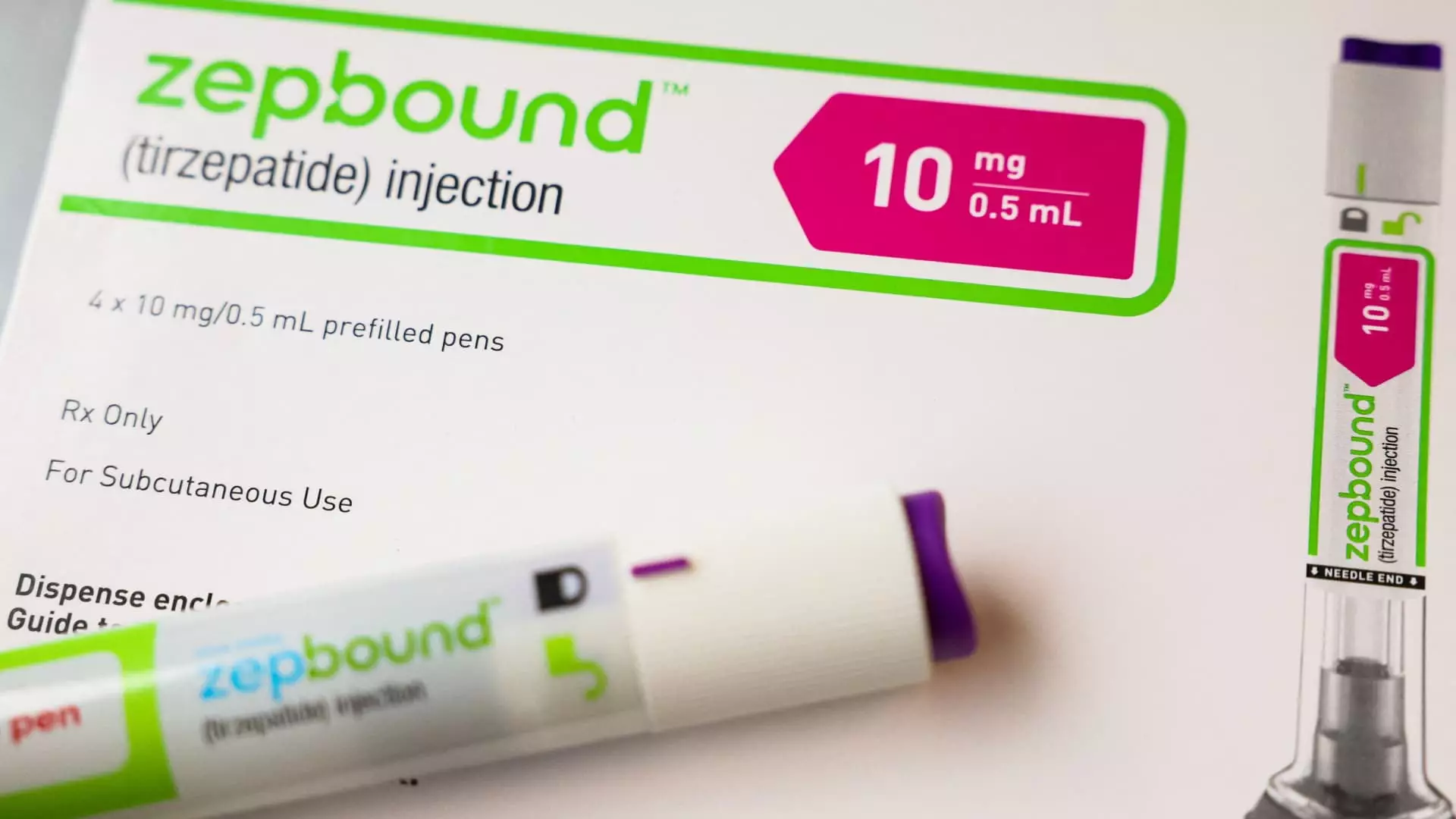Eli Lilly, a prominent name in the pharmaceutical industry, has recently made headlines with its strategy to enhance accessibility to Zepbound, a weight loss medication that has garnered significant attention. The decision to introduce higher doses of Zepbound in single-dose vials at reduced prices aims to address a glaring issue: the affordability and accessibility of effective obesity treatments for patients without insurance coverage, particularly those under Medicare. This move signifies not just a business strategy but also a response to rising demand for this life-changing drug, shedding light on the complex landscape of obesity treatment in the U.S.
On a recent Tuesday, Eli Lilly announced the release of 7.5 mg and 10 mg doses of Zepbound in single-dose vials. Priced at $499 for the first month for new prescription fills and slightly higher upon refills, this pricing structure represents a drastic reduction from the conventional costs associated with weight loss medications, which can soar to around $1,000 monthly when utilizing autoinjector pens. The introduction of these vials is strategic, promoting patient self-administration using syringes—an approach aiming to streamline production and distribution efforts while maintaining efficacy.
The transition from autoinjector pens to vials could potentially alleviate ongoing supply issues that have plagued both the market and patients. By simplifying the production process, Eli Lilly hopes to not only replenish stocks but also ensure that patients can obtain a treatment recognized for its effectiveness, rather than substituting with potentially unsafe compounded versions.
One of the most commendable aspects of Eli Lilly’s recent announcement is its targeted approach to patients who are often left without viable treatment options—namely, those enrolled in Medicare or employer-sponsored plans that exclude coverage for obesity medications. By creating a self-pay pharmacy section on its LillyDirect website, Eli Lilly is setting a precedent for offering affordable pharmaceutical solutions in the face of failing insurance structures, a notable contrast to the industry’s conventional practices.
As noted by Patrik Jonsson, president of Eli Lilly’s diabetes and obesity division, the lack of comprehensive coverage for obesity treatments demands innovative responses. The company’s strategy is perhaps not entirely altruistic—market forces dictate that they must retain patients who would otherwise turn to unregulated alternatives—but it does reflect a significant shift towards prioritizing patient needs significantly impacted by economic barriers.
The backdrop of Eli Lilly’s efforts is marred by a competitive landscape that includes compounding pharmacies producing cheaper, unregulated alternatives of Zepbound. Concerns regarding safety, efficacy, and quality surround these compounded versions, presenting a clear justification for Eli Lilly’s refreshed offerings. With the U.S. Food and Drug Administration declaring the shortage of Zepbound over, the ability to ensure that patients have access to a reliable product becomes increasingly important, particularly as the FDA’s stance will soon restrict many pharmacies from producing their renditions.
Eli Lilly’s firm stance against price competition with these compounders emphasizes their commitment to not only providing affordable medication but also highlighting the risks associated with non-compliant alternatives.
While Eli Lilly has been reticent about the explicit uptake of Zepbound vials from LillyDirect, the indication from Jonsson that usage among new patients in the obesity treatment market is growing resonates well with the company’s expectations. With 10% of new treatment patients opting for Zepbound through LillyDirect, there is a clear market acceptance of their new pricing strategy. The anticipated launch of additional dosing options is likely to foster further growth and increase accessibility, addressing the needs of a diverse patient population seeking effective weight loss solutions.
The integration of telehealth services via Eli Lilly’s partnership with independent health providers further enhances the accessibility of Zepbound, showcasing a strategic blend of technology and healthcare aimed at modernizing the patient treatment pathway.
Eli Lilly’s recent initiatives to offer Zepbound in higher doses at lower prices through single-dose vials represent both a necessary response to market demands and an innovative approach to patient care. By proactively tackling access issues for patients underserved by traditional healthcare coverage, Eli Lilly is not simply expanding its market share but is also redefining the obligation of pharmaceutical companies toward patient accessibility and affordability. As the industry continues to evolve, the spotlight remains on how such strategies will influence patient care in the realm of obesity treatment and beyond.


Leave a Reply